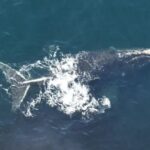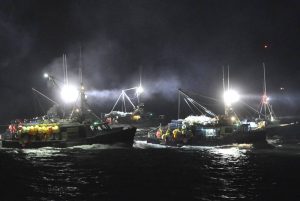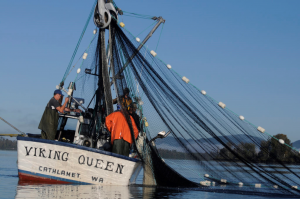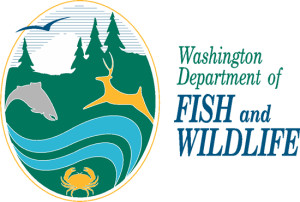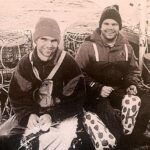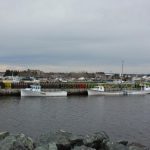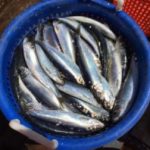Tag Archives: wastewater effluent
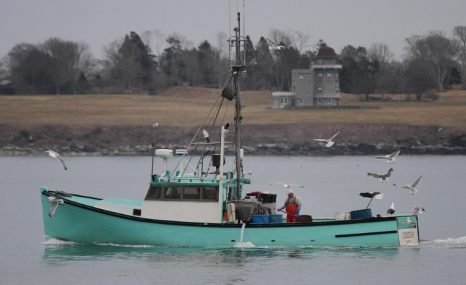
Fishermen: Narragansett Bay cleanup might be doing harm
Narragansett Bay is cleaner and clearer than it’s been in decades. But after huge strides in treating wastewater and controlling storm runoff, some are asking a question that would have been unthinkable just a few years ago about what is arguably Rhode Island’s most valuable natural resource: Is the Bay too clean? Fishermen are raising the issue after seeing steep declines in numbers of flounder, lobster and other species that were once so abundant that they formed the bedrock of their industry. It has gotten bad enough that lobsterman Al Eagles says that he and others now call the Bay “Chernobyl,” a reference to the site of the devastating Soviet-era nuclear disaster. click here to read the story 09:20
Waste Water Treatment Plants: Once home to thriving aquaculture, Great Bay is under great strain – You can see it in the lack of eelgrass beds that used to cover thousands of acres of tidal flats. These new treatment plants have filtered or poisoned most of the nutrients from the Piscataqua River and the many other rivers that serve their municipalities that dump their now super-treated effluent into the tidal water, now so sterile and lacking in nutrients and full of poison that plants and animals cannot survive. click here to read the story
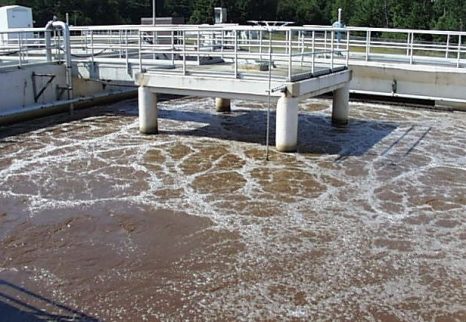
Waste Water Treatment Plants: Once home to thriving aquaculture, Great Bay is under great strain
GREAT BAY’S wonderful production of gourmet food has come to an unbelievable halt, and there’s bound to be a lot of uninformed debate on how to get those species such as clams, oysters, smelt, herring, white perch, crabs, lobsters and other multiple flora and fauna that may slip my mind.,, We’ve lost just about all of this incredible fish and game resource gradually! We’re going to get some flack from the do-gooders as to why they are gone, but when you look at the changes that have been parallel to the loss of fish, it’s been the rebuilding or refitting of the many sewage treatment plants that have been put into service that seem to be the answer to this lack of fish and game. You can see it in the lack of eelgrass beds that used to cover thousands of acres of tidal flats. These new treatment plants have filtered or poisoned most of the nutrients from the Piscataqua River and the many other rivers that serve their municipalities that dump their now super-treated effluent into the tidal water, now so sterile and lacking in nutrients and full of poison that plants and animals cannot survive. Read this article! click here 08:43
The Surprising Side Effect of Anti-Anxiety Medication — on Salmon
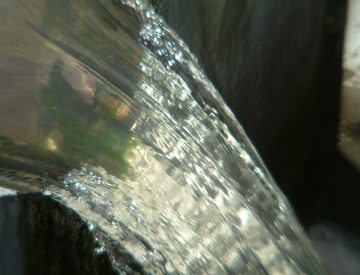 In a study out of Sweden’s Umeå University, researchers show oxazepam — a pharmaceutical prescribed to humans for the treatment of anxiety, alcohol withdrawal, and insomnia — affects the downstream migratory behaviour of Atlantic salmon. Exposing fish to anti-anxiety medication isn’t something that only happens in scientific studies: when humans excrete drugs, some can end up in wastewater effluent and subsequently in sensitive habitats where salmon may get an unintended dose. The researchers found that when fish ingest oxazepam, it makes them migrate faster and farther — potentially recklessly so. Leaving the freshwater nursery and heading out to sea is part of the salmon lifecycle, but landing in the big blue too soon can be risky. Fish may find ocean conditions unfavourable — too cold, too dangerous, or lacking food, for example. Read the story here 14:19
In a study out of Sweden’s Umeå University, researchers show oxazepam — a pharmaceutical prescribed to humans for the treatment of anxiety, alcohol withdrawal, and insomnia — affects the downstream migratory behaviour of Atlantic salmon. Exposing fish to anti-anxiety medication isn’t something that only happens in scientific studies: when humans excrete drugs, some can end up in wastewater effluent and subsequently in sensitive habitats where salmon may get an unintended dose. The researchers found that when fish ingest oxazepam, it makes them migrate faster and farther — potentially recklessly so. Leaving the freshwater nursery and heading out to sea is part of the salmon lifecycle, but landing in the big blue too soon can be risky. Fish may find ocean conditions unfavourable — too cold, too dangerous, or lacking food, for example. Read the story here 14:19

































